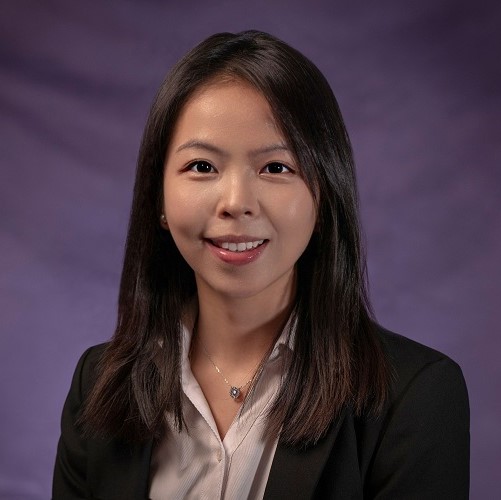 Yanjing Liang is a first year PhD student and one of the de Tornyay Center for Healthy Aging’s predoctoral scholars. Her research areas of interest include aging-related medical issues.
Yanjing Liang is a first year PhD student and one of the de Tornyay Center for Healthy Aging’s predoctoral scholars. Her research areas of interest include aging-related medical issues.
Why did you choose nursing?
The original reason is my family members have some chronic diseases. I learned nursing so that I could take care of them and provide them with health knowledge.
After I chose nursing, I think nursing chose me at the same time.
I like nursing. It can be personally fulfilling, because it provides opportunity for lifelong learning and professional development. I like connecting with people, and nurses often develop strong relationships with patients, their families, and interdisciplinary colleagues.
There was a time when I worked as a volunteer in a hospice care institution in my first year as a college student. I learned about integral role of nursing. I helped the nurses, social worker, and accompanied and talked with patients with advanced cancer, and took care of their children. I felt a strong sense of achievement, and at that time I felt being needed.
I decided to be part of this integral role, and that’s why I say, I chose nursing and nursing chose me.
What got you interested in research?
During my fourth year of college study, I found some clinical problems in clinical rotation, but there was no new evidence. So I thought maybe I needed to learn some research skills to improve clinical conditions.
What research did you do in your Master’s program, before you came to UW?
When I was a first year graduate student, I was exploring my research direction. I participated in 2 or 3 projects.
The first one is that I had the opportunity to participate in a fundamental medicine research project exploring the phenotypes of biofilm formation in bacteria, such as streptococcus mutants, in a wet laboratory. It let me know what research is from a different perspective.
After that, I started my clinical rotation at the head and neck cancer department and I discovered that the diagnosis and treatment can cause severe side effects for this kind of patient, such as psychological symptoms, which can lead to reduced social interaction and possible isolation.
So with this in mind, I conducted graduate research on improving social isolation among head and neck cancer survivors. I conducted a psychometric study on validating a social isolation measurement tool and used it to investigate the factors of social isolation among head and neck cancer patients.
Has there been anything that surprised you while working on those research projects?
For head and neck cancer patients, their average age is approximately greater than 55 years old. They experience more difficulties than I realized. However, due to the differences in culture backgrounds, our participants were different in expressing their emotions compared to related studies conducted in other countries.
This suggests to me that we need to pay attention to the impact of a multi-cultural background. In conducting future studies, we need to focus on cultural background and what their social interaction style is.
What interests you about healthy aging?
I think the ultimate goal of doing research is to serve the public, so that our research can benefit society.
If we are able to conduct interventions for elderly patients, we can better promote healthy aging and reduce their burden of experiencing disease.
Healthy aging actually is a big topic. It doesn’t just focus on elderly. It runs through the whole life span of a person.
Is there anything else you would like to add?
I think the head and neck cancer patients, this kind of patient has loss of body function brought by the aging process, and additionally, they have to experience the damage caused by treatment and caused by disease.
This made me realize the study of aging is actually a complex study. Because some of the older adults, they may experience chronic disease, and at the same time they experience some function reduction from aging. So we need to account for a wide range of circumstances and need to analyze differences between each individual and provide tailored interventions and health education.